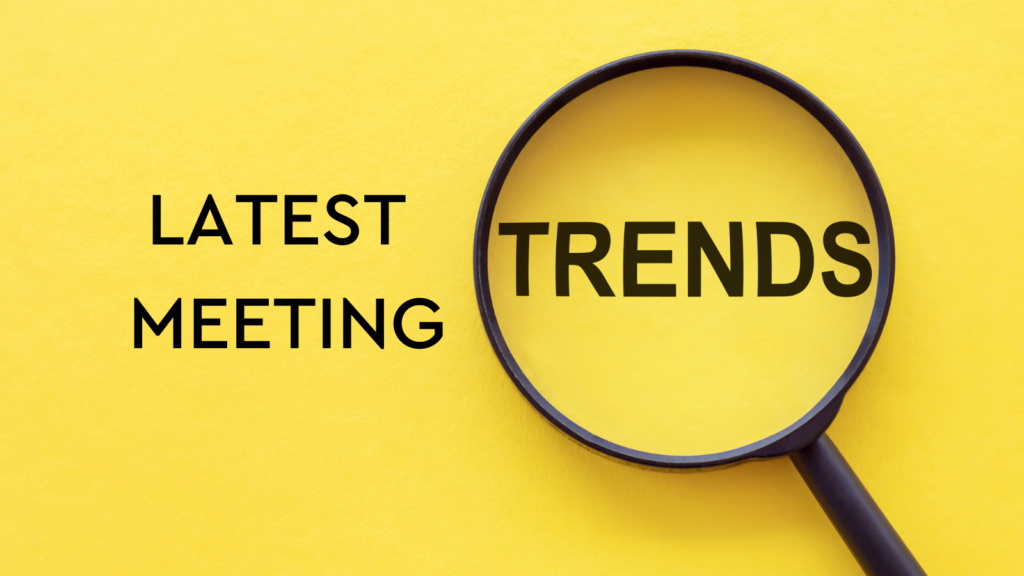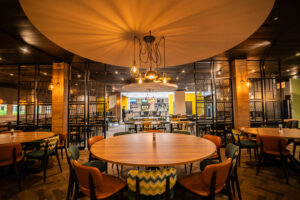
Latest Meetings Trends Revealed
The IBTM annual World Trends Report 2023 presents a picture of the current behaviours and values of the event buying community and revealing major trends in the shape, size and fabric of events and their future role for business. Compiled by Alistair Turner, MD of EIGHT PR & Marketing, the document gathers 12 months’ data and empirical evidence to draw valuable conclusions. It’s a compelling read and in this blog we share some of the report’s key findings:
STATE OF THE NATION
Businesses around the world are gripped by seismic factors: the wake of the Pandemic, the cost-of-living crisis, progressive environmental damage and the war in Ukraine topping the chart of drivers influencing behaviours and spend.
On a micro level, there has been a cultural trend affecting the workspace: many more people are opting not just to work at home, but to take their work with them wherever they go. Research by North American careers website Ladders, projects that 25% of all professional jobs will be remote before the end of 2023.
At the same time, there has been a rise in mental ill-health. The American Psychological Association’s Work and Wellbeing survey found that 79% of employees reported experiencing work-related stress; 36% had cognitive weariness and 32% had emotional exhaustion.
These two factors signal the value of events, particularly conferences and meetings, in providing the means for an increasingly fragmented workforce to come together.
BUYER BEHAVIOURS
Association, corporate meetings and incentive travel have all rebounded from the Pandemic as brands have relaunched and businesses strive to gain, engage and nurture talent. And with global workforces becoming more scattered, the need to underline corporate culture is stronger than ever.
Marketing budgets are continuing to grow and, according to recent IPA Bellwether Reports, events are claiming a growing share of them. Of the surveyed companies, 24.2% raised their total marketing expenditure at the start of 2022, with events a key purchase.
However, as far as event organisers are concerned, we have not returned to ‘business as usual’. The report points to major cultural shifts that will require planners to approach events differently.
NEW PRIORITIES
A ‘new tone’ is emerging, marked by a transition towards ethically led business. Millennials, occupying the largest segment of the workforce with a cohort of 17 million, are firmly focused on sustainability, inclusivity, security and wellness. Leaders are aware how important it is for businesses to act with integrity and to follow through on their promises.
Sustainability has been a major issue for many years now, but, says the report, there is an increasing sense of urgency for the meetings and events community to act faster if we are to reach Carbon Net Zero by 2050.
It highlights several movements and organisations that are leading the way; our seven conference and training venues have recently achieved the Bronze award in the Green Meetings Standard – administered by Green Tourism, one of the world’s leading eco-friendly accreditation organisations. The Standard enables hotels, conference centres and other venues to chart their progress towards sustainability and covers initiatives from reducing energy use and saving water, through ethical buying and minimising food miles, to eco-friendly waste disposal.
DIVERSITY, EQUALITY AND INCLUSION
Events have picked up on the new positive, ethical and purposefully global culture. Mirroring this transition across the wider business world, the industry is moving to create more opportunities for marginalised communities.
The workplace of 2023 will be diverse and multicultural, says the report . Successful leaders will be those who understand how to leverage this talent.
FORMATS AND CONTENT
With the driving priority to reach as many of the target audience as possible, the traditional live event will increasingly be complemented by digital, virtual and hybrid experiences.
Research is already pointing to growing numbers of virtual delegates due to the convenience of ‘attending’; with sustainability high on the agenda, the decision to travel is becoming an issue if there is an acceptable alternative.
Recent advances in AI, VR, AR and extended realities will offer new, exciting and engaging experiential opportunities to enhance and transform the attendee experience in ways that traditional live events never could. People will be able to connect in deeper and more human ways.
LOCALISATION
There’s a trend for global meetings to become split into smaller, regional gatherings; organisers are looking to ‘localise’ their meetings and events. When speaking to venues, the focus is moving away from large scale room space to connectivity capacities that can serve remote audiences. Also, planners are looking to inject hyper-localisation into event elements such as food and theming, and access to local expertise.
CONCLUSION:
Changes in our global, business and industry cultures are affecting the way companies and teams collaborate, communicate and meet. The outcomes will in turn affect the way the meetings and events industry interacts with business. But, concludes Alistair Turner, whatever issues are thrown at it, it can handle. “Robustness is in the DNA of every #eventprof. They make the culture.”
The full IBTM World Trends Report is available here: https://www.ibtmworld.com/en-gb/about/industry-trends.html
Go back to other articles

